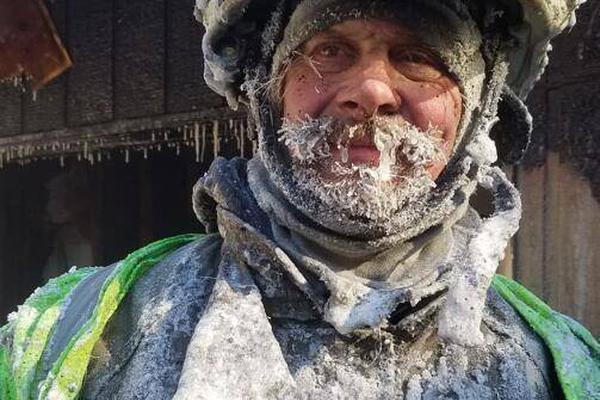【?? ??? ?? ?????? ?? ????? ??? ??????】Enter to watch online.These islands are the dumpster for humanity’s plastic addiction
Discarded cigarette lighters,?? ??? ?? ?????? ?? ????? ??? ?????? toothbrushes, and useless plastic water bottles have piled up on the Cocos Islands' white sand beaches, a balmy tourist destination surrounded by aquamarine waters.
Marine scientist Jennifer Lavers and her research team traveled to this tropical paradise, an Australian territory in the Indian Ocean, for a couple weeks in 2017. They knew many beaches were littered with plastic trash, but after giving the coast proper scientific scrutiny, discovered the human-debris problem to be substantially worse than anyone knew. Their research, published Thursday in the journal Scientific Reports, found an estimated 414 million pieces of trash -- much of which were the broken apart scraps and shards of plastics, deteriorating as they drifted through the oceans, before finally coming to rest on the white Cocos' sand.
Although the piles of worthless single-use bottles -- which are manufactured with the intention of promptly becoming waste -- are unsightly, it's the smaller plastics that pose the greatest pollution problem.
"It doesn't break down," emphasized Lavers, a research scientist at the University of Tasmania's Institute for Marine and Antarctic Studies. "It breaks up into hundreds, or thousands, or millions of microplastic particles."
 Original image has been replaced. Credit: Mashable
Original image has been replaced. Credit: Mashable This plastic then becomes impossible to clean up. Sea creatures often eat it up, filling their stomachs.
Not all plastics, of course, are the problem. They're necessary in hospitals, airplanes, and make our vehicles lighter and more efficient. It's the worthless plastic -- the single-use plastics -- that compose this mounting mess and piles up on beaches. Lavers wants us to see where much of it goes. "If we can't see our responsibility in creating the problem, then we’re unwilling to change," she said.
In some places -- notably in front of resorts or coastal cities -- plastics are regularly raked off the beach, often by large beach-combing tractors. But on many beaches the plastic isn't ever cleaned up, and the true consequences of humanity's single-use plastic addiction are made conspicuous.
"There’s this image of a desert island that's pristine," said Elizabeth Mendenhall, an assistant professor of international government and marine affairs at the University of Rhode Island. "To realize that there are not places left like that in the world is unfortunate."
"It's just a lot plastic," Mendenhall, who had no role in the study, added after reading the study.
 Original image has been replaced. Credit: Mashable
Original image has been replaced. Credit: Mashable The Cocos Islands, of course, aren't an exception. Islands around the world are the graveyards of plastics. Previously, Lavers documented the uninhabited Henderson Island in the South Pacific Ocean. There, she found 37.7 million pieces of plastic.
But unlike Henderson, the Cocos are both inhabited and visited by people. The plastic isn't some remote afterthought.
SEE ALSO: Fearless TV weather forecasters air the planet's soaring carbon levelsIn both the Henderson and the Cocos, Lavers and her team set out randomly placed transects, or research zones, on the islands from which to count plastics. "It was extremely time-consuming," said Lavers. From these areas, Lavers and her team estimated the total number of plastic pollution on the islands.
"They’re inundated with the worst waste," she said. This plastic waste might get smaller, but it won't ever go away.
Ending the plastics scourge
Solving modern civilization's plastic scourge will require "an unprecedented scale of effort." But there is a path forward, no matter the (tall) hurdles.
1. Clearly, society must slash demand for worthless, single-use plastics.
"There are so many things we can do," said Richard Gross, a chemist at Rensselaer Polytechnic Institute who researches innovative ways to make markedly more sustainable, recyclable plastics.
"Why don’t we carry around bags that we can use over and over again?" asked Gross, who had no role in the study. "Why don’t we carry around some utensils that are reusable and washable? People need to understand how serious the current situation is."
Shunning single-use plastics doesn't require being a "hippy" or left-leaning liberal, added Lavers. "I look like your average, everyday person...I don't sacrifice major things, I just make different decisions."
"It just so achievable," Lavers added.
2. The necessity of plastic laws
While individual efforts to avoid single-use plastics are important, no one thinks such an ingrained, pervasive, and global scourge can be solved without committed international rules. For example, experts want rules requiring countries to ensure that plastics don't travel from landfills and cities into the seas.
"I think that international action is necessary," said Mendenhall.
"We need to put together an international coalition," agreed Gross. "If we don’t do that we’re going to be in bad shape. The plastics are fragmenting. They're going to be the micro and nano particles that we’re not going to retrieve."
 Original image has been replaced. Credit: Mashable
Original image has been replaced. Credit: Mashable Already, 168 members have ratified the United Nations Law of the Sea. This requires coastal countries to prevent, reduce, and control land-based pollution, explained Mendenhall.
But, like the international rules that outlaw killing whales, the Law of the Sea has no teeth -- there's no enforcement of these rules. "Just putting words on a page is not nearly enough," said Mendenhall.
The problem is worse than we think
We can expect more plastics to fill the seas.
The UN -- already grappling with accelerating climate change and public health crises like AIDS -- certainly isn't pushing for international action on plastic pollution. Because of that, industries will continue to produce billions of plastic bottles each year, many of which will find their way into the oceans.
"It's multinational corporations that are producing and disseminating the majority of these plastics," said Mendenhall, noting that it's cheap to pump out single-use plastics. They're not built to last; they're designed to be trash.
Both corporations and nations simply don't have an economic incentive to solve the problem. But they do have the power to make a massive dent in the plastics problem. "Amazon is so powerful," said Mendenhall. "Getting a company like that to change its practices could have a big impact."
 Original image has been replaced. Credit: Mashable
Original image has been replaced. Credit: Mashable Today, fish are eating a lot of the plastic that we put in the oceans, and we eat this fish. It's still unknown how ingesting plastics affects human health, noted Mendenhall. But what is known is that plastic use has quadrupled in the last 40 years, and if these trends continue, by 2050 the global plastics industry will emit prodigious amounts of carbon into the already carbon-saturated skies.
Plastic bottles and plastic bags, then, are remarkably unsustainable from a number of perspectives. So far, recycling efforts haven't made a big enough dent. In 2015, just 9 percent of plastic waste in the U.S. was recycled.
"It's horrific. We’re failing at every end here," said Gross, who's developing chemical technologies to make plastics that can naturally biodegrade.
The reality is grim. But Lavers doesn't want to promote hopelessness in the face of an industrial barrage of single-use plastics. "I want people to feel inspired," she said. That means doing something, anything -- like picking up trash from the beach before it enters the ocean and breaks up into thousands of microplastic bits.
Take a hard look at that plastic fork, or plastic water bottle, before using it.
"We lived happily without plastic literally for centuries," said Lavers.
Featured Video For You
Ever wonder how the universe might end?


